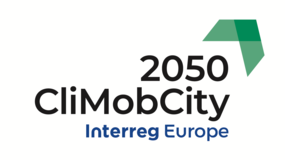The partner cities Leipzig, Thessaloniki, Bydgoszcz and Plymouth together with the supporting partners TU Delft (also lead partner) and PIK present their finalized input for mobility modelling input, mobility modelling approaches and some first modelling results. Test results of the CO2 emission model from PIK are presented.
From the first modelling results the cities can already draw the conclusion that the ‘business as usual’ scenarios in general already results in an increase of mobility. In some cases we see some shifts in transport modal choice as a result of earlier policies. Especially in Thessaloniki, the introduction of a metro line has a very significant impact. In most cities we can also observe a growth in average transport distance.
The first CO2 emission analysis, applied on the BAU of Plymouth, indicates that along the overall growth in mobility (and transport distance), also CO2 emissions would increase. Analysis of the measure packages show, however, a significant modal shift with a reduction in car use, as well as a significant reduction of CO2 emissions (around 20%). If carbon-neutral electrification would be implemented, almost 90% of carbon emissions could be reduced.
PIK signals that freight transport is left out of the analysis. As freight transport contributes to CO2 emission as well, measures would be necessary in this field as well.
During the virtual site visit, Thessaloniki presents the development of Smart Cities and Sustainable Development, and more concrete, the case of Controlled Parking of the Municipality of Thessaloniki.
During the Seminar sessions introductions are given on Sustainable Urban Mobility Planning: Pathways and Links to Urban Systems (SUMP-Plus), a study on CO2 reduction potential of new mobility concepts for the city of Warsaw, Funding and financing options for sustainable urban mobility measures and approaches for increasing the willingness of citizens to participate in developing mobility plans.


